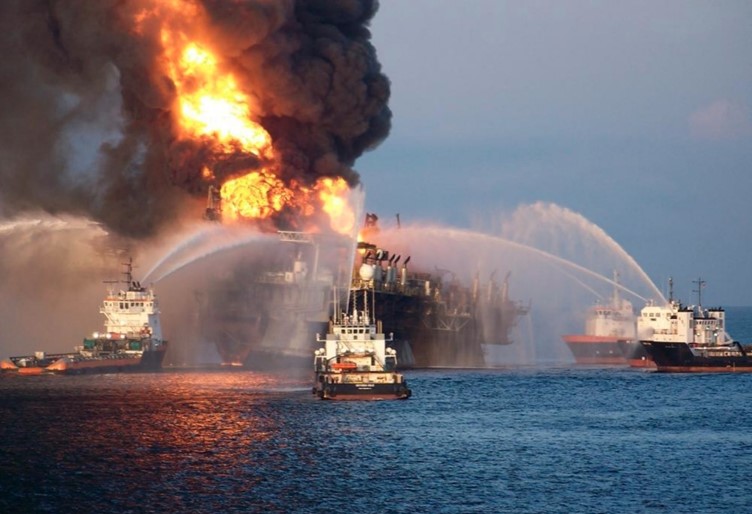
On 20 April 2010, an incident occurred on the semi-submersible drilling rig, Deepwater Horizon, that would shape the oil spill landscape and play a significant part in improving the measures put in place to prevent anything similar from happening again.
On the anniversary of this important event, we’re reflecting on our involvement in the clean-up operations, the lessons that were learned from this particular spill, and the major impact it had on the surrounding environments.
On that day in April, the Macondo exploration well suffered a subsea blowout, spilling crude oil into the Gulf of Mexico that would continue leaking into the water for a total of 87 days. 11 crew members lost their lives, and a further 17 suffered serious injuries in this incident that would become one of the worst environmental events in history.
The fire burned for 36 hours until the rig sank into the water as hydrocarbons continued to flow from the reservoir through the wellbore and blowout preventer at Macondo.
We deployed 70 members of staff over 3,542 person days during the aftermath of this incident, supporting strategic planning, SCAT (Shoreline Cleanup Assessment Techniques) activities, aerial dispersant operations, SMART fluorometry, and liaising with stakeholders.
We combined with WWC another major emergency response organisation, to provide a one-stop solution to the industry, covering all aspects of emergency response, from surface oil recovery to subsea capping and containment hardware, well control and well kill operations, relief well planning and drilling, and logistics support via air, sea and land that was not available at the time of Macondo.
The main lesson that Macondo has taught the industry, including our members, is that organisations should not become complacent. This spill came off the back of four decades of ever decreasing incidents. While it is true that even with the safety protocols of 2010 it took a number of factors to all go wrong at once for it to happen, and that safety checks and balances have been hugely tightened up since then.
Our own Subsea Division was set up in the wake of Deepwater Horizon. This has led to the creation of our four capping stacks, stored in the strategically effective locations of Brazil, Singapore, South Africa and Norway.
We played a key role in the move towards a cleaner industry, building on our range of Member Response Services. Member response services include access to the Duty Manager at any time, logistics support with our own aircraft to transport equipment or access to chartered aircraft with us acting as an agent, a stockpile of dedicated oil recovery equipment and dispersants, wide-area high-volume aerial dispersant spraying capability and a pool of expertise with a broad and in-depth range of skills.
The sheer size of the operation and funding investment involved in attending this spill, provided us and other industry members with valuable ‘on the ground’ experience using new technologies and techniques, while leading to increased funding for response technologies.





